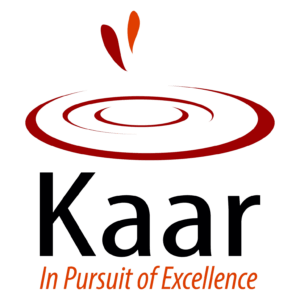Hello there,
In the dynamic world of the oil and gas industry, dealing with changing demands, complex rules, and aging equipment is a real puzzle. But guess what? There’s a superhero in town called Enterprise Resource Planning (ERP) software. This tech wizard swoops in, bringing all the different parts of a business together to make things run smoother, save money, and make sure everything follows the rules.
Now, in this blog, we’re going to dive into the best ERP software for Oil and Gas Industry and compare three big players—SAP S/4HANA, Oracle Fusion Cloud, and Microsoft Dynamics 365. Think of it as your guide to finding the best sidekick for your oil and gas company. We’ll check out what each of these superheroes (or software, in our lingo) can do for you and help you figure out which one suits your company the best. So, buckle up for some ERP adventures!

The Best ERP Software for Oil and Gas Industry
SAP S/4HANA: The Robust and Flexible ERP Solution
SAP S/4HANA is a cloud-based ERP software tailored for the oil and gas industry, excelling in financial management, inventory control, project oversight, and asset management. Its robust features streamline complex financial transactions, optimize inventory with real-time tracking, facilitate efficient project execution, and ensure downtime-minimizing asset management. A strategic ally, SAP S/4HANA proves essential for businesses navigating the intricacies of the oil and gas sector.
Primary Features:
Financial Management:
- Assess profit and loss through automated reports, predictive analysis, and consolidated company estimates.
- Maintain a centralized journal for comprehensive bookkeeping, including managing client credit scores.
Procurement:
- Utilize real-time, in-depth analyses for purchase orders, requisitions, invoices, and contracts, enhancing procurement insights.
- Obtain, allocate, and review sourcing data points within a unified system, supporting both instant and manual filing concurrently.
Supply Chain Management:
- Govern business rules, raw material availability, and distribution standards to ensure precise client delivery timelines.
- Manage domestic and international freights, optimizing warehouse workflows for efficient operations.
Inventory Management:
- Implement lot and serial number tracing to monitor items, costs, units, and expiration dates with precision.
- Seamlessly construct or dismantle kits for stocking or ordering, enhancing inventory control.
Analytics and Reporting:
- Develop manufacturing, inventory management, and other reports for comprehensive documentation and audit tasks.
- Customize dashboards to align with unique workflows, providing insightful analytics tailored to specific business needs.
Why SAP S/4HANA?
Efficiency Amplified:
- With 84% of features boasting out-of-the-box support, SAP S/4HANA maximizes business operations.
- Industry-specific needs are seamlessly addressed, simplifying decision-making processes.
Top-Rated Modules:
- Inventory management, finance and accounting, and supply chain management lead the pack.
- These modules receive top ratings, ensuring a holistic approach to oil and gas ERP requirements.
Boosting Company-Wide Productivity:
- Automatic business procedures, data-driven decision-making, and embedded analytics elevate efficiency.
- Reduction in human errors translates to saved time and money.
Consolidated Information:
- Integration of data in one system through in-memory computing avoids disparate operations.
- Large datasets are governed effectively to detect patterns and overcome obstacles.
Adaptable Insights:
- Real-time profitability analysis, pricing, and quotes empower companies to navigate changes effectively.
- The system identifies change protocols promptly, enhancing overall adaptability.
Limitations:
- Not all features have embedded analytics.
- Lack of a customer service portal.
Oracle Fusion Cloud: Streamlining Finance, Project Management & Analytics
Oracle Fusion Cloud is a distinguished cloud-based ERP software, thoughtfully curated with a spectrum of features tailored to the specific needs of the oil and gas industry. This versatile software seamlessly integrates finance, project management, analytics, and other critical functions, presenting a comprehensive solution for companies operating in this dynamic sector.
Primary Features:
Finance and Accounting:
- Craft detailed budgets, incorporating data for cost centers and fiscal years.
- Determine depreciation for tangible assets and amortization for intangible assets.
- Access multi-currency support for seamless global transactions.
HR Management:
- Centralize employee profiles, capturing career achievements, certifications, and skills.
- Administer engagement surveys in real time, fostering a responsive work environment.
Project Management:
- Facilitate internal and external collaboration with versatile tools like voice and file sharing.
- Implement task management, leveraging document annotations for enhanced productivity.
Analytics and Reporting:
- Generate, share, and access a variety of reports, including warehouse management, standard, service, project, and procurement reports.
- Enable role-based reporting for personalized insights tailored to specific positions.
CRM:
- Oversee status, profits, contacts, and opportunities in a centralized CRM system.
- Review pipeline leads and prospects comprehensively, tracking names, clients, sales representatives, and expected closes.
Why Oracle Fusion Cloud?
Streamlined Operations:
- Oracle Fusion Cloud excels in streamlining finance, project management, analytics, and more.
- Companies of all sizes benefit from its versatile tools that ensure seamless upstream and downstream activities.
Module Excellence:
- An impressive 87% of modules boast out-of-the-box support.
- Key modules like finance and accounting, HR management, CRM, and project management receive top ratings.
Brand Enhancement:
- Personalize reports and dashboards to enhance branding strategies.
- Accelerate processes with machine learning and AI tools, allowing focus on high-priority responsibilities.
Business Opportunities via IoT:
- Embrace the Internet of Things (IoT) for broader customer experience and improved solutions.
- Leverage ERP tools to tap into growth opportunities, ensuring expedited and superior processes.
Data-Driven Decision Making:
- Utilize high-end technology to gather data, monitor KPIs, and make informed business decisions.
- Automatic reporting features save time and minimize errors, fostering efficiency.
Limitations:
- Incompatibility with Chrome browsers.
- Lack of multi-subsidiary vendor tools and batch picking support.
Microsoft Dynamics 365: Modular Approach for Growing Companies
Microsoft Dynamics 365 stands out as a practical cloud-based ERP solution for the oil and gas sector. With a modular approach, it allows companies to choose and scale functionalities based on their specific needs in finance, supply chain management, project operations, asset management, and customer service. The integration with Microsoft’s ecosystem, including Office 365 and Power BI, enhances productivity and collaboration, making Dynamics 365 a pragmatic choice for small to medium-sized enterprises in the industry.
Primary Features:
Finance and Accounting:
- Reconcile account balances effortlessly with bank statements, ensuring financial accuracy.
- Manage cash accounts, currencies, beginning balances, and descriptions, streamlining financial operations.
- Automate deferred revenue calculations and seamlessly integrate values into your financial files for enhanced efficiency.
Inventory Management:
- Dynamically adjust inventory levels for new, damaged products, marketing giveaways, and shrinkages.
- Utilize various valuation methods, such as standard, average, first-in-first-out (FIFO), ensuring accurate stock item valuation.
Procurement:
- Automatically generate purchase orders based on inventory levels and replenishment formulas, streamlining procurement processes.
- Generate and assign Request for Quotations (RFQs) to one or more suppliers, specifying details like document titles, delivery dates, and more.
CRM (Customer Relationship Management):
- Empower specific individuals and roles to review and update client or vendor account data and balances.
- Manage an online self-service portal, providing consumers easy access to account information, support cases, and real-time updates.
Project Management:
- Access and utilize project plan templates for scenario simulations, allowing for effective planning and management.
- Develop and assign work breakdown schedules for diverse project types, ensuring streamlined project execution.
Why Microsoft Dynamics 365?
AI-Infused Data Sharing:
- Dynamics 365 ERP utilizes AI data to push business growth and boost performance.
- Seamless data sharing across all company departments ensures a cohesive approach.
Mid-Sized Company Focus:
- Tailored for mid-sized companies, Dynamics 365 ERP operates on both cloud and on-premises deployment.
- Top modules include inventory management, finance and accounting, and CRM.
Consolidation with LinkedIn Sales Navigator:
- Merge the system with LinkedIn Sales Navigator for centralized workflows and data.
- Better decision-making and relationship management are achieved through this strategic consolidation.
Enhanced Teamwork:
- Supervise coworker meetings, emails, and client collaboration for improved teamwork.
- Augmented predictive forecasting analyzes trends and customer needs for proactive decision-making.
Improved Customer Satisfaction:
- Review client email interactions to strengthen selling points and boost response times.
- Implement AI features for fraud protection, safeguarding the eCommerce market.
Limitations:
- Can create asset QR or barcodes but lacks some asset management functions.
- Interface may experience lags.
- No support for email campaign templates.
Conclusion:
Why SAP S/4HANA Reigns Supreme in Oil & Gas ERP?
Within the diverse realm of oil and gas ERP solutions, each contender brings its strengths. However, after meticulous exploration, SAP S/4HANA emerges as the prime choice. Its focus on efficiency, adaptability, and top-rated modules like inventory management and finance solidify its position.
Why SAP S/4HANA is the Optimal Choice?
Efficiency & Adaptability:
- SAP S/4HANA excels in maximizing business operations, streamlining decision-making, and adapting to industry-specific needs.
- Reduction in human errors ensures saved time and money, amplifying overall efficiency.
Top-Rated Modules:
- With inventory management, finance, and accounting modules receiving stellar ratings, SAP S/4HANA provides a holistic approach.
- Automatic business procedures and embedded analytics enhance decision-making capabilities.
Consolidated Information & Structure:
- Integration of data in one system through in-memory computing avoids disparate operations, ensuring consolidated information.
- Industry-specific modules contribute to understanding best practices and capabilities.
Real-Time Profitability Analysis:
- Real-time profitability analysis, pricing, and quotes empower companies to navigate changes effectively.
- The system identifies change protocols promptly, enhancing overall adaptability.
Key Business Benefits of Implementing SAP S/4HANA in Oil & Gas Industry
- Benefit from a 5%–10% reduction in parts inventory.
- Achieve a 2%–5% reduction in operating costs.
- Experience a 1%–2% increase in production uplift.
- Attain a 2% higher refining and sales margins.
- Realize a 6% reduction in hydrocarbon inventory.
- Boost personnel productivity by 10%–30%.
- Attain a 2%–3% increase in refined product margins.
- Reduce unplanned downtime by 10%–30%.
Next Steps:
If you are considering implementing SAP S/4HANA in oil and Gas Industry, KaarTech is an excellent choice. Boasting over 20 years of experience in delivering SAP solutions, KaarTech has the expertise and knowledge necessary to help you harness the full potential of SAP S/4HANA.
Overall, SAP S/4HANA and KaarTech are a winning combination for businesses looking to optimize their operations and stay ahead of the competition. We are all set to help you anytime!
Do check out for more details in KaarTech Website.
Contact us to know more about and explore synergies!
FAQ’s
Why is ERP software important for the oil and gas industry?
ERP software streamlines operations, manages complex financial transactions, optimizes inventory, and ensures compliance with industry regulations, enhancing efficiency and profitability.
What are the primary features of SAP S/4HANA for the oil and gas sector?
SAP S/4HANA offers robust financial management, procurement capabilities, supply chain optimization, inventory tracking, and comprehensive analytics tailored to the industry’s specific needs.
How does Oracle Fusion Cloud benefit oil and gas companies?
Oracle Fusion Cloud integrates finance, project management, analytics, and customer relationship management, providing a comprehensive solution to streamline operations and enhance productivity.
Why choose Microsoft Dynamics 365 for mid-sized oil and gas enterprises?
Dynamics 365 offers modular functionalities, seamless integration with Microsoft’s ecosystem, and enhanced teamwork capabilities, ideal for mid-sized companies seeking scalable ERP solutions.
